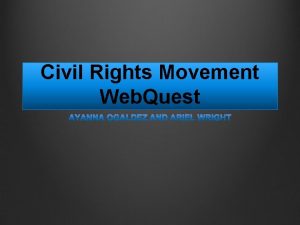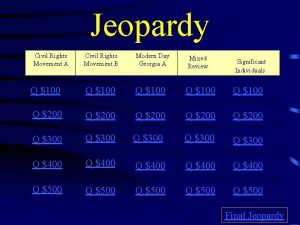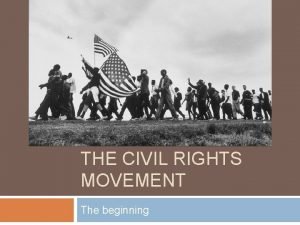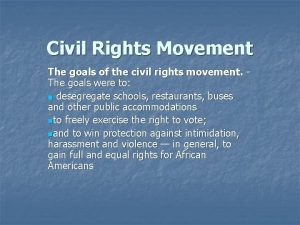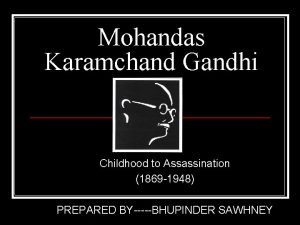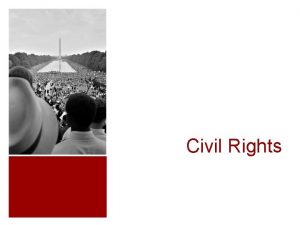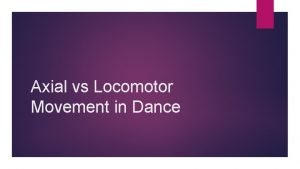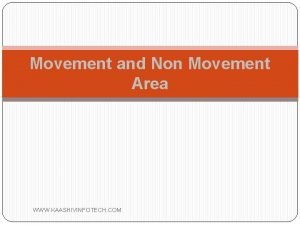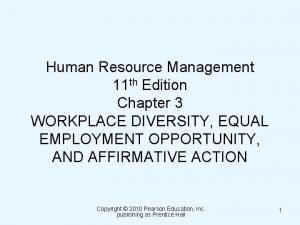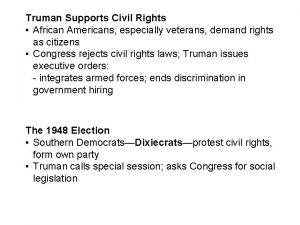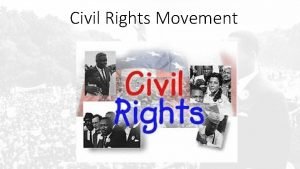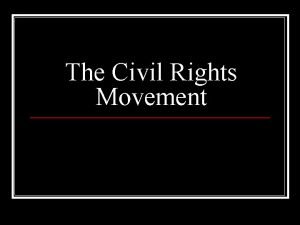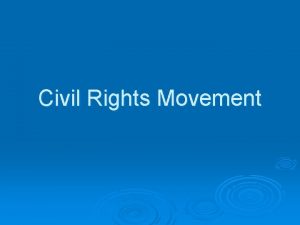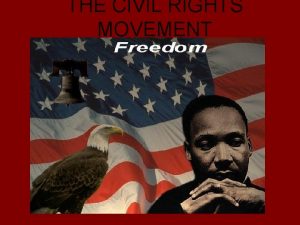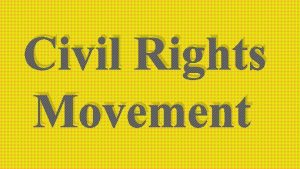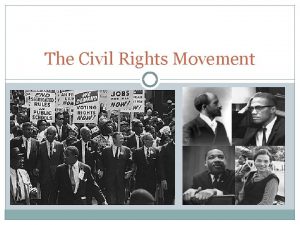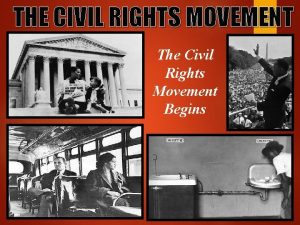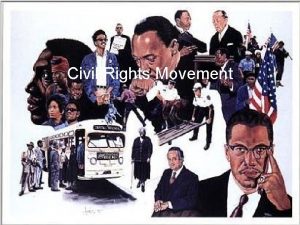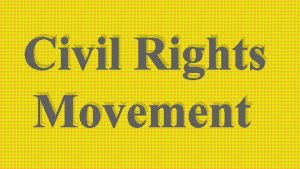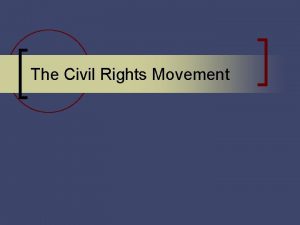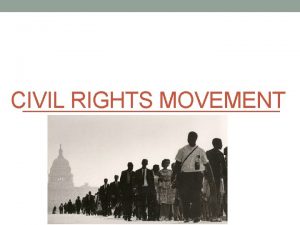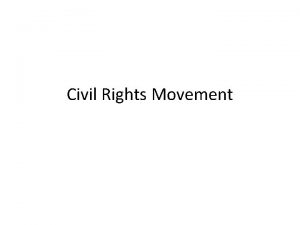CIVIL RIGHTS MOVEMENT 1950s1960s WHAT ARE CIVIL RIGHTS

















- Slides: 17

CIVIL RIGHTS MOVEMENT 1950’s-1960’s

WHAT ARE CIVIL RIGHTS? • Civil rights are rights that protect individuals' freedom from the governments, social organizations, and private individuals. • They allow people to participate in the civil and political life of the society and state without discrimination or repression.

EARLIER CIVIL RIGHTS LEADERS • Frederick Douglass • Abolitionist before the Civil War • Fought for the rights of freed slaves to vote • First Black Ambassador (to Haiti)

BOOKER T. WASHINGTON • Civil Rights leader in the late 1800’searly 1900’s • Thought Black people should work hard at their jobs to prove they were equal to White people • Started the Tuskegee Institute to teach Black people vocational education (plumbing, auto mechanic, carpentry, etc. )

W. E. B. DUBOIS • Civil Rights leader in the late 1800’searly 1900’s • First Black man to go to Harvard university • Thought Black people should actively try to change discrimination laws • Started the NAACP to help challenge unfair laws

IDA B. WELLS • Campaigned to stop lynching of Black people

EARLY 1900’S • Most African-American people lived in the South in the early 1900’s • Most African-Americans lived as poor sharecroppers • During the Great Depression, many African-Americans moves to the North for industrial, factory jobs this was called the Great Migration

WORLD WAR II Segregated units: Black only units Often Black units did the support work

NAACP • What is it? National Association for the Advancement of Colored People • Started by W. E. B. Du. Bois • What Did It Do? Paid for Black people to take their cases to court and challenge laws that discriminated by race

SCHOOL DESEGREGATION • Brown v. Board of Education • Case led by NAACP lawyers • Supreme Court decision that segregated schools are unequal and must desegregate • Contained 5 cases, including a Virginia case

BROWN V BOARD OF EDUCATION • Key people • Thurgood Marshall —NAACP Legal Defense Team & First Black Supreme Court Justice • Oliver Hill— NAACP Legal Defense Team in Virginia

VIRGINIA RESPONSE • Massive Resistance—Closing some schools • Establishment of private academies that could choose not to accept Black people • White flight (white people moving away) from urban school systems

1963 MARCH ON WASHINGTON • “I have a dream” speech given by Martin Luther King. • The march helped make white people want to support civil rights laws • The march showed the power of non-violent, mass protest.

NON VIOLENT PROTEST Sit in: when Black people went to White restaurants and did not leave Marches and Boycotts: Black people in Montgomery, Alabama stopped riding buses that segregated Black and White people

CIVIL RIGHTS ACT OF 1964 • The act stopped discrimination based on race, religion, national origin, and gender. • It also desegregated public accommodations. • President Lyndon B. Johnson played an important role in the passage of the act.

VOTING RIGHTS ACT OF 1965 • The act outlawed literacy tests. • Federal registrars were sent to the South to register voters. • The act resulted in an increase in African American voters. • President Lyndon B. Johnson played an important role in the passage of the act.

VOTING RIGHTS ACT 1965
 Insidan region jh
Insidan region jh Civil rights webquest
Civil rights webquest Civil rights movement essential questions
Civil rights movement essential questions Civil rights movement vocabulary
Civil rights movement vocabulary Mother of the modern day civil rights movement
Mother of the modern day civil rights movement Civil rights movement webquest
Civil rights movement webquest Civil rights movement jeopardy
Civil rights movement jeopardy The civil rights movement
The civil rights movement Goals of the civil rights movement
Goals of the civil rights movement Program of civil disobedience movement
Program of civil disobedience movement Civil right movement def
Civil right movement def Locomotor is also known as axial movement
Locomotor is also known as axial movement What is a non movement area
What is a non movement area Title vii of the civil rights act
Title vii of the civil rights act Truman supports civil rights
Truman supports civil rights Brain wrinkles social studies answer key
Brain wrinkles social studies answer key Civil rights in child nutrition programs
Civil rights in child nutrition programs What did the civil rights act of 1875 do
What did the civil rights act of 1875 do





